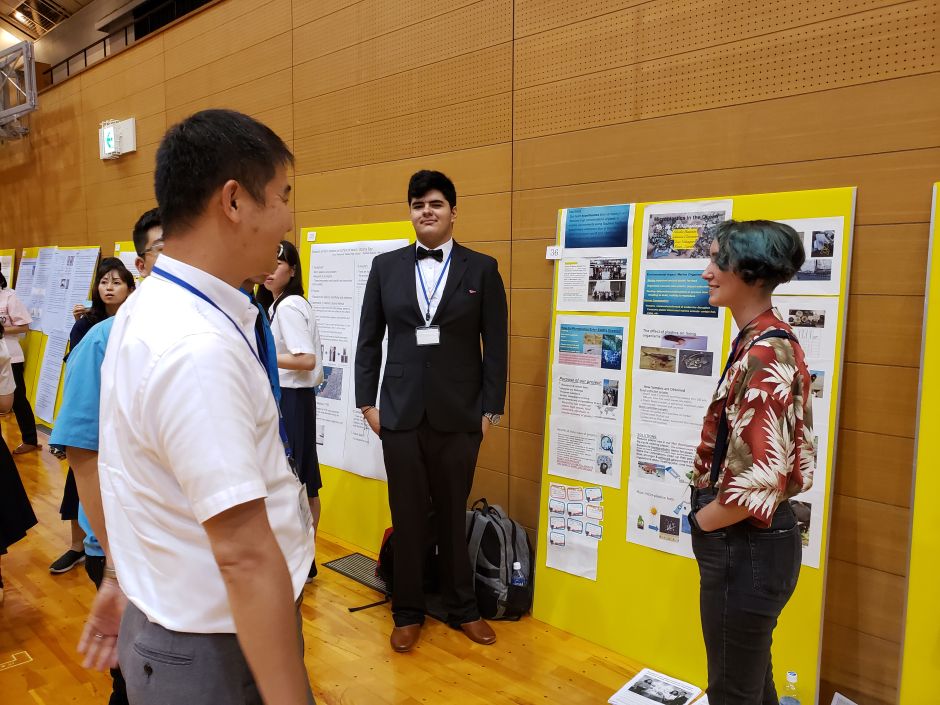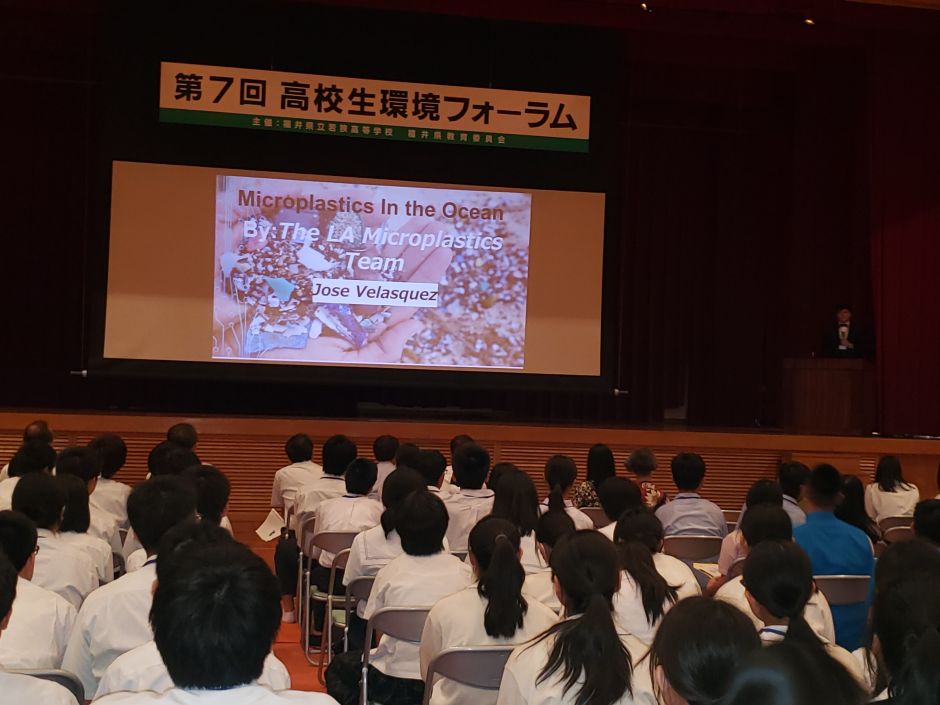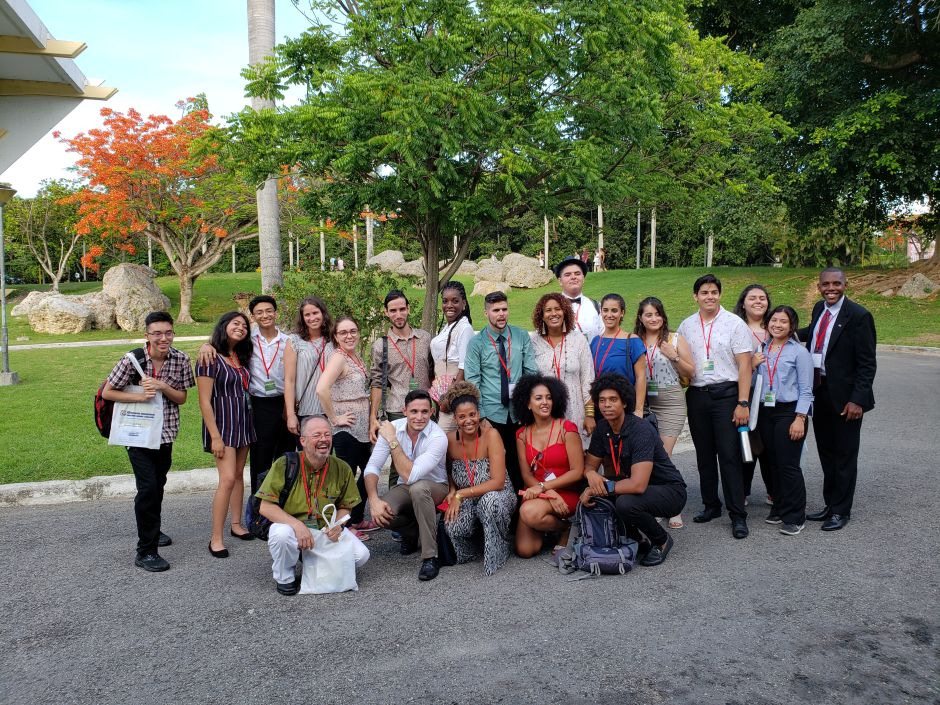Students in southern Los Angeles explain to the community how plastic and unicel that end up in the sea cause irreversible damage even to human health
It has been a few months since three students from Animo Leadership High School in Lennox, south of Los Angeles, traveled to Cuba and one of them to Japan to share their experiences and discoveries on how to combat pollution in the oceans, ports and beaches.
José Velázquez, Johanna Cervantes, and Kevin Zepeda are part of The LA Microplastics Team, a club with extracurricular activities that allows them to learn to reduce maritime pollution and inform communities about how to help.
The students have become so expert in the subject that they know how to explain how plastic, straws and unicel can cause irreversible damage to many marine animals. They also elaborate how the damage can reach people if the animals that digest these plastics are subsequently hunted for food.
After a fundraiser, the students managed to travel to Cuba with their teacher Mark Friedman for a period of 10 days. They said they are impressed to visit the island that seems to have stayed in the past, but at the same time it is wise in the fight against pollution.
"The cars are very old but people use public transport a lot and this helps to reduce pollution," said Cervantes, 16. “Its environment is very beautiful, you can see mango trees everywhere. That is not seen here. ”
The youth said that during the Cuba Ambiente conference, which takes place every two years, they learned more about how to reduce pollution.
“In my house we recycle everything in a container and when it is full we separate the bottles and cans and take them to recycle,” said Zepeda. "Also when we go out I take my bamboo or metal straw to avoid asking for plastic straws."
The teenager stressed that the latter may seem a bit odd to some people, but for him it is putting his grain of sand in reducing pollution.
Japan crisp
During their fundraising for their trips, the avid students could only afford a trip to Japan and Velázquez was chosen. He and Mr. Friedman had the opportunity to appear at a student conference at the University of Kyoto.
“When I got there I was impressed with how clean the streets are. They feel that walking and eating are disrespectful, ”said Velázquez, who added that it is not common to see sources of soda in shops, much less in fast-food restaurants.
The student graciously told how he had to carry his garbage all day because he couldn't find garbage cans, but neither did he litter on the ground or in the streets. He emphasized how amazed he was to see the great change in this issue between Japan and the United States.
"If more people were that clean (as in Japan) we would be much better," said the Mexican-rooted student.

Representing your community
The three students said they were proud to be able to represent their community in southern Los Angeles inside and outside the country.
The young people agreed that belonging to low-income families, but wanting to excel, motivates them to expand their knowledge to other people.
And Wednesday was no exception. The trio came to Lawndale High School to talk with a group of students about how they can form their own maritime club.
Additionally, they said they will not remain silent before people like President Donald Trump who does not believe in climate change.
"We are not misbehaved children, we are leaders, advocates, activists and we are the future of this planet," said Cervantes. "Not only do we do this for our future, but for the future of our children and the generations to come."
An invitation to the sea
The young boys invite to all people interested in know plus about of the lifetime maritime to what participate in the travels in ship free that will begin to offer The Angels Maritime Institute in collaboration with the Conservation of the coast.

The three-hour rides on a 110-foot-tall boat are open to the general public and will be offered once a month starting on October 27 with two rides; from 11am to 2pm and from 3pm to 6pm. The ship leaves Ports O’Call in San Pedro.
The following will be on November 23 and December 21.
Several presenters will participate in the trips that will discuss different topics. The group of these three students will talk about how plastic impacts the birds that come to ingest it and how much garbage can be collected in a mesh during the trip.
The talks will be bilingual. This will allow each individual to take personal action and reduce plastic that flows into the sea and pollution in the drains that impacts humanity, coasts and marine organisms.
Those interested in making this unforgettable free trip can register by calling (310) 833-6055 to receive all the details or by mail to info@lamitopsail.org
For more information on the boat you can visit: https://www.lamitopsail.org/







